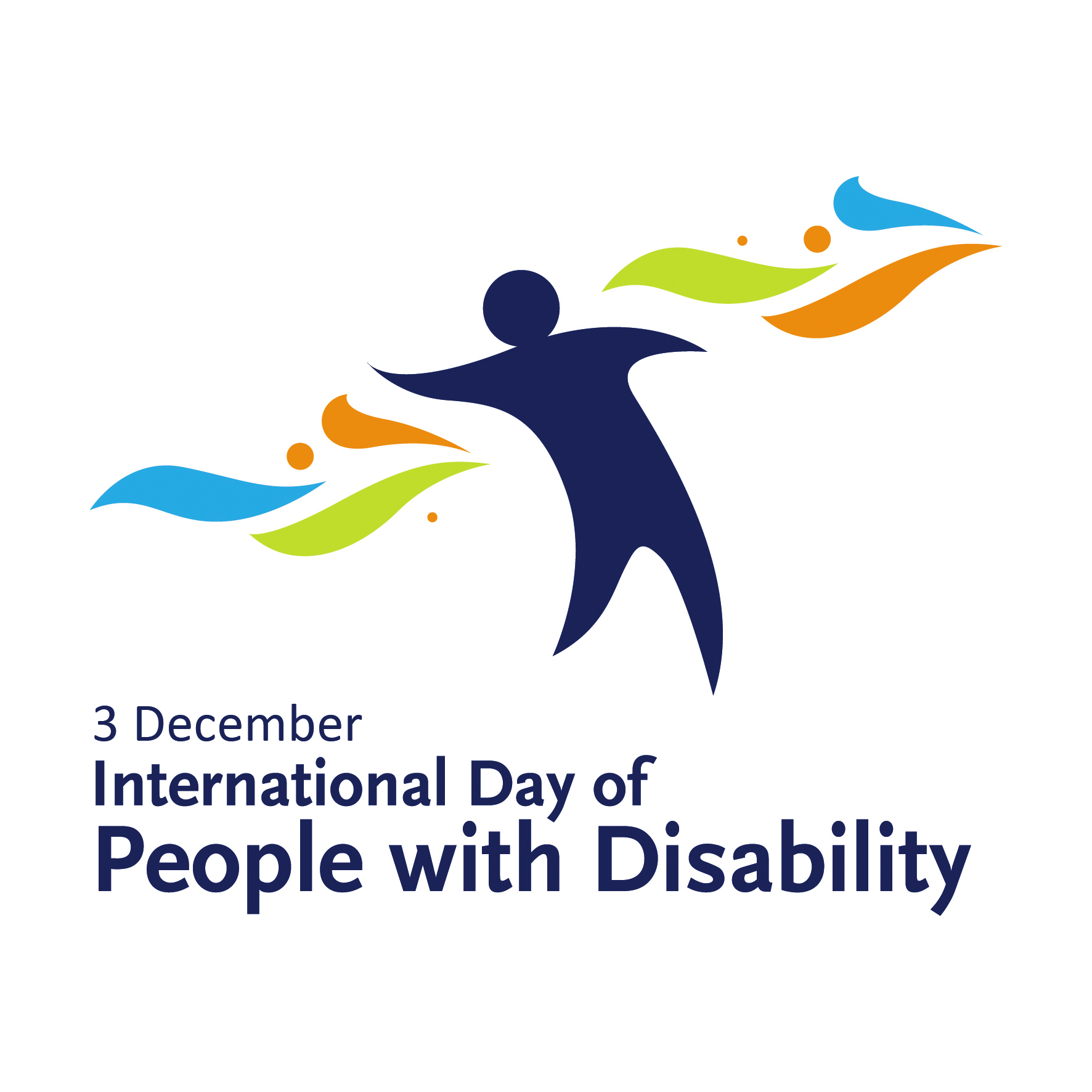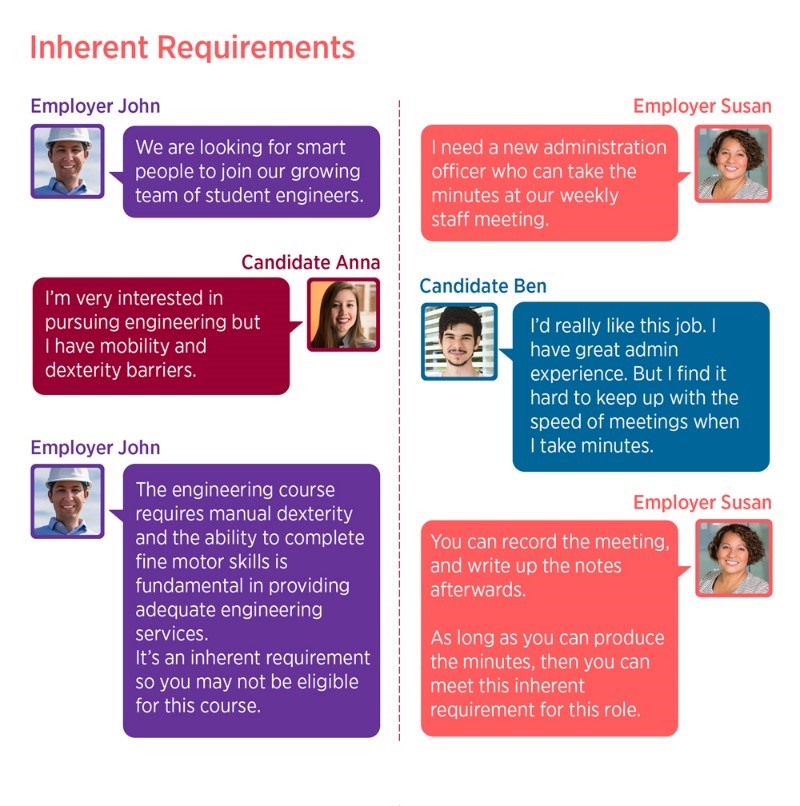Disability

Western Sydney University is committed to creating an equitable and inclusive environment for all students and staff including those with disability.
Disability may affect mobility and movement control, vision, hearing, thought processes, learning, communication methods and other aspects of the way a person interacts with the environment; and can be defined as any condition that restricts or impairs a person’s mental or physical function, or their sensory or neurological functioning. In many cases, adjustments to the physical environment or processes may remove barriers to full and effective participation on an equal basis with others.
Disability may be visible or hidden, permanent, episodic or temporary, and may have a minimal or substantial impact on a person’s abilities. Some people are born with disability and many others acquire disability through an accident, injury, or the impact of disease.Not everyone who lives with a health condition will consider that they have disability, but the Disability Discrimination Act 1992 (Cth) (or DDA) supports and protects all Australians who have a condition that causes total or partial loss of functioning.
Disability is part of human diversity.
In Australia, disability affects 1 in 5 people in the population and just over a third of Australian households include a person living with disability. Often people with disability come up against significant barriers while trying to do the things that many people take for granted.
Many experience additional disadvantages due to factors such as having more than one disability, being from culturally and linguistically diverse backgrounds, gender, socioeconomic status or living outside the metropolitan or large regional centre.
Relevant legislation and policies which support the standards and rights for people with disability can be found in the Resources page.
While supporting students and staff with disability or chronic health conditions, you may come across particular terms related to disability supports and considerations which need to occur to ensure students and staff are not discriminated against due to disability. A list of some of these terms are listed below.
Disability disclosure
There is no legal obligation to disclose disability to the University. However, it is important to keep in mind that disclosure, may be practical in certain situations, such as where reasonable adjustments or additional forms of support can be provided.
Where documentation seeks information about disability or illness, individuals can choose to respond or state ‘not applicable’ for any disability that will not impact on performance. Individuals need to consider whether their condition is likely to recur and/or get worse over the course of time.
In instances where information is being sought, the University must demonstrate the reason for seeking this information, advise on consequences of not providing this information, allow access to information that is provided, and inform individuals which other parties will have access to this information and in what circumstances.
In some circumstances, the University may choose to refuse employment or training opportunities to people with a disability in order to protect the health and safety of people, including the person with a disability. However, when this is the case, the University is compelled to consider whether there are any other alternatives to this action.
The decision to disclose does not need to be final and can be re-evaluated over time, based on the person's work and personal circumstances. Understanding your legislative and policy rights, responsibilities, and seeking the advice of disability services and support networks may assist you to decide whether to disclose or not.
Disability discrimination
Disability discrimination occurs when a person is treated less favourably than others because they have a disability, or someone thinks they have a disability. It can also occur when a rule or policy is the same for the broader community but can have an unfair impact on people with a particular disability. As such, there are both direct and indirect forms of disability discrimination.
Direct disability discrimination can include such situations like not hiring an individual due to their disability, reassigning an employee to a lesser role or terminating an employee’s employment because of their disability. One of the most common forms of discrimination is failing to make necessary adjustments to accommodate disability.
Indirect disability discrimination takes place when a particular way of working or a policy has a negative impact on a disabled person. For example, holding training at a venue that is only accessible by stairs which would make wheelchair access not possible.
The Disability Discrimination Act (DDA) 1992 (opens in new window) protects people with a disability from discriminatory treatment in a range of areas including employment, education and access to services, facilities and public areas. This Act makes disability discrimination unlawful and promotes equal rights, equal opportunity and equal access for people with disabilities.
Inherent requirements
Inherent requirements for students
Inherent requirements are the essential components of a course or unit that demonstrate the abilities, knowledge and skills required to achieve the core learning outcomes of the course or unit, while preserving the academic integrity of the university's learning, assessment and accreditation processes.
Inherent requirements are specific to a particular course and must be met by all students. In the University context, in addition to inherent requirements, there are also compulsory requirements of a course. These are broader and can include both compliance with the policies, procedures and regulations which are applicable to all students at the University and also the mandatory requirements associated with the course of study e.g. attendance, completion of assignments.
For further information on student Inherent Requirements, please refer to the Western Sydney University Inherent Requirements webpage.
Video: Trevor Allen discusses reasonable adjustment for students
Inherent requirements for staff
Inherent requirements are the essential components of a role that must be carried out in order to fulfil the requirements of the position description.
The inherent requirements of a role will vary depending on what the role is. They may include:
- The ability to perform tasks which are essential to perform a job productively and to the required quality
- The ability to work effectively in a team or other organisation
- A crucial inherent requirement for any position is the ability for the individual to comply with Work Health & Safety Standards.
If an employee is unable to perform a role due to their disability or chronic health condition, the employer must examine whether adjustments can be made to assist the individual to be able to perform the role.
These adjustments are described as workplace adjustments or reasonable adjustments.
The framework below as outlined by the Australian Human Rights Commission can be used as guide when recruiting staff:
- It is the responsibility of the employer to clearly spell out the essential duties of the position being advertised and what type of work the employee is expected to do.
- The Australia Human Rights commission also outlines that if a person is able to perform the inherent requirements of a job and is the best person for the job, they should be offered the position.
- People with disabilities or health conditions must be assessed on their current ability to do the job – not on assumptions about how their disability or health condition may have affected them in the past or may affect them in the future.
- If a person with a disability cannot perform the inherent requirements of a job because of the disability, the employer must consider how the person with a disability could be provided with reasonable adjustments to help them do the job.
Source: https://www.humanrights.gov.au/quick-guide/12052
Reasonable adjustments
Reasonable adjustments are administrative, environmental or procedural alterations in the employment or learning situation which remove barriers for people with a disability so that they can perform the inherent requirements of the job.
Reasonable adjustments are implicit in the requirement to avoid indirect discrimination under the Disability Discrimination Act.
Reasonable adjustments for students
Students at Western Sydney University with a disability or chronic health condition may be eligible to have reasonable adjustments implemented through an Academic Reasonable Adjustment Plan (ARAP) to enable them to meet the inherent requirements of their course.
Reasonable adjustments for staff
Staff at Western Sydney University with disability or chronic health condition may be eligible to have reasonable adjustments implemented through reasonable adjustment plan (RAP) to enable them to meet the inherent requirements of their role.

